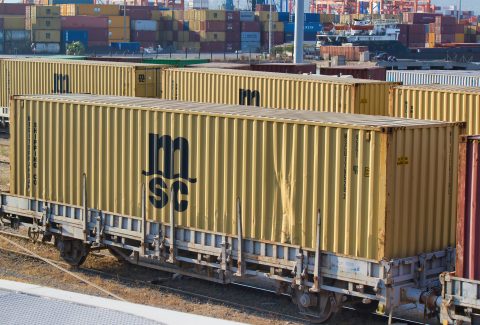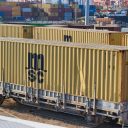Eurasian rail is currently experiencing a boom, with shippers affected by the situation in the Red Sea and Suez Canal shifting their cargo to trains. “Increased sea freight transit times and the dangers of the war zone cause concerns to shippers who are looking to rail as a viable alternative,” says Igor Tambaca, managing director of Rail Bridge Cargo. He also highlights a significant surge in service requests and bookings.
“It is already the busiest time of the year,” comments Tambaca. “In this sense, it is a headache but, nevertheless, a pleasant one. It is a good development to cope with,” he continues.
His company, Rail Bridge Cargo, a specialist in rail logistics and transport between the Benelux region and China, has experienced a business boom in the last few weeks. “For two weeks now, we have been experiencing a significant surge in service requests and actual bookings,” explains Tambaca. To be more precise, the Dutch company has seen a 67 per cent increase in service requests and a 48 per cent increase in service bookings.
The whole Eurasian rail market seems to be benefiting from the hurdles of sea transport currently, which is a normal development. More companies active on the Silk Road have been reporting increased service demand. At the same time, talks between sector professionals speak of a great opportunity that rail is ready to grasp and handle appropriately. Tambaca confirmed this: “Eurasian rail is still capable of coping with the volume surge at the moment,” he said.
More markets in the portfolio
An interesting aspect of the volume shift on rail also concerns the markets by which transport requests originate. For instance, many volumes exiting cargo vessels and onboarding trains will follow the traditional route to reach Europe fast and efficiently. Yet, there is a demand surge in the Middle Corridor, too.
“The Trans-Caspian route via Aktau-Baku is also experiencing increased demand, especially for services to Turkey, Jordan and Israel, because those countries are facing the most severe challenges with sea freight at the moment,” concludes Tambaca
Also read:
‘Red Sea situation demonstrates importance of diversifying transport solutions’


